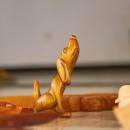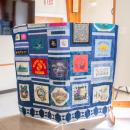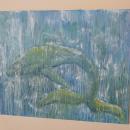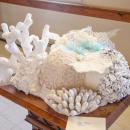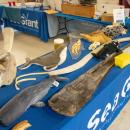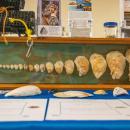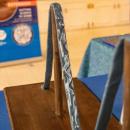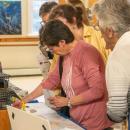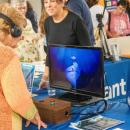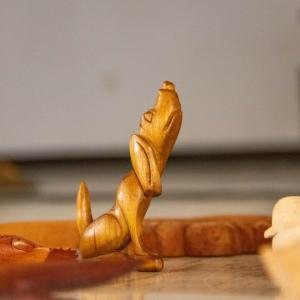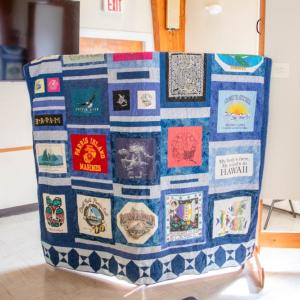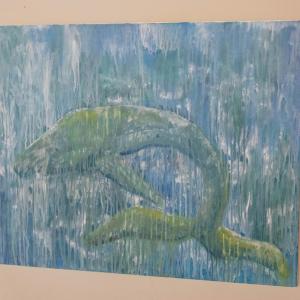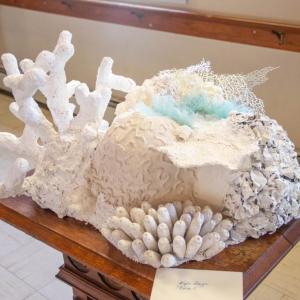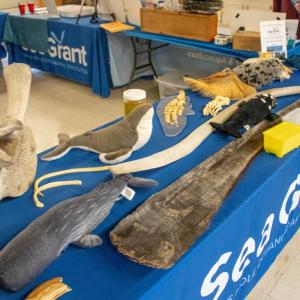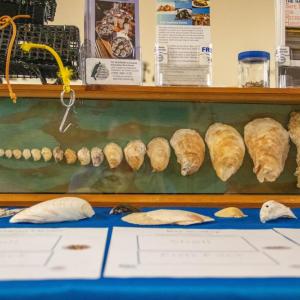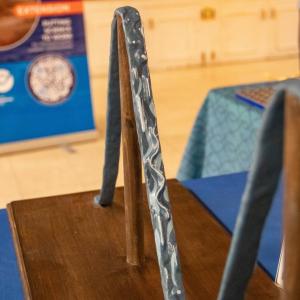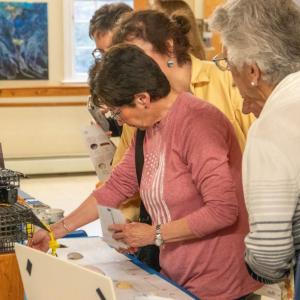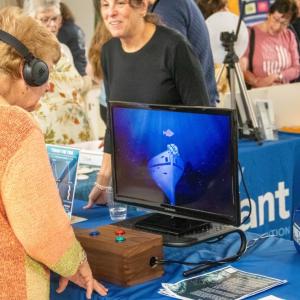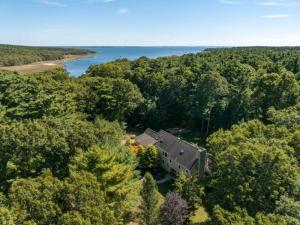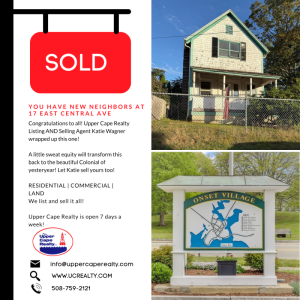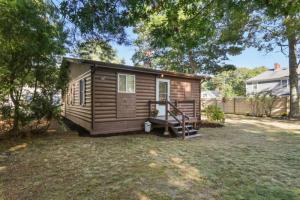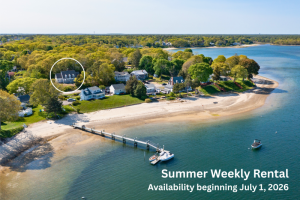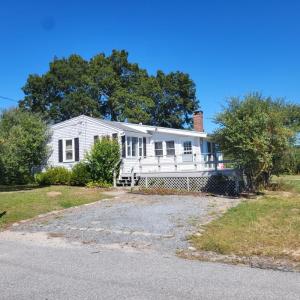Science meets art in exhibit putting coastal landscapes on display
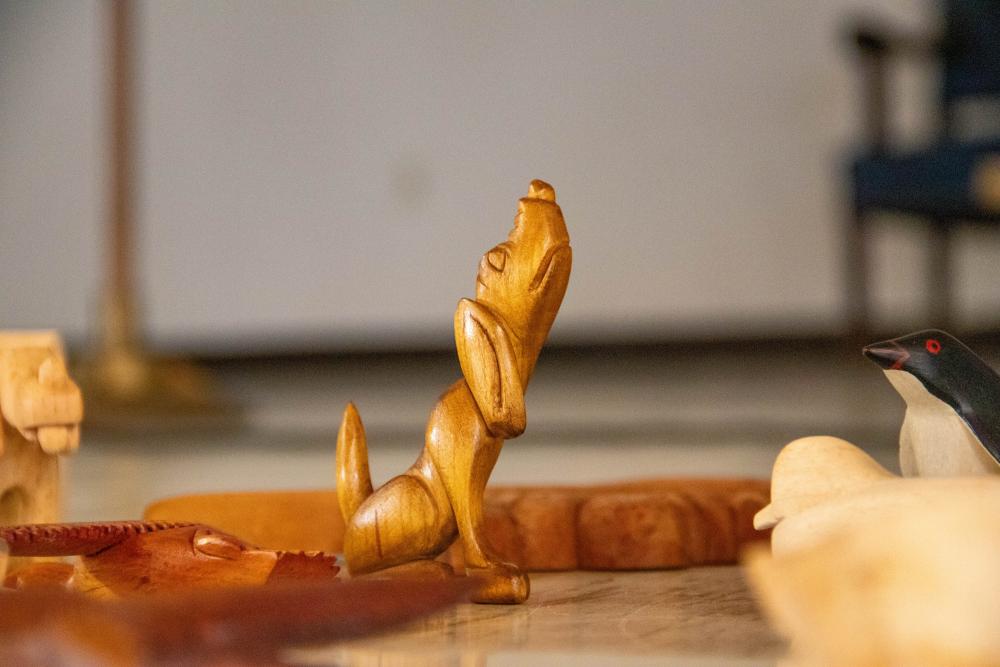 A dog carved by Ronald Westgate on display during the event. Photo by Bobby Grady
A dog carved by Ronald Westgate on display during the event. Photo by Bobby Grady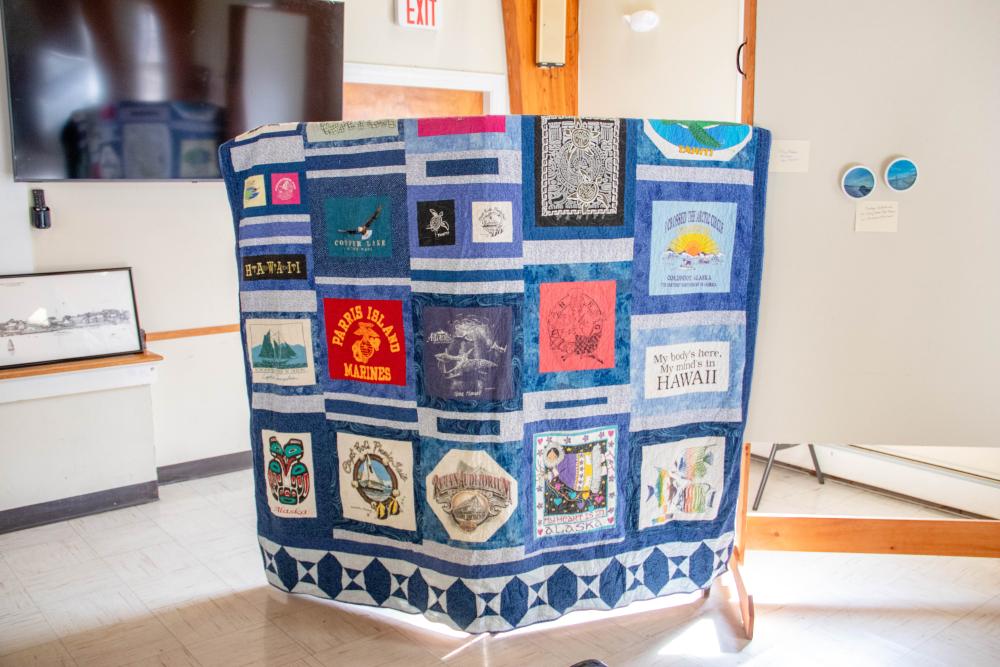 The quilt Westgate and his wife Mary made out of old T-shirts.
The quilt Westgate and his wife Mary made out of old T-shirts.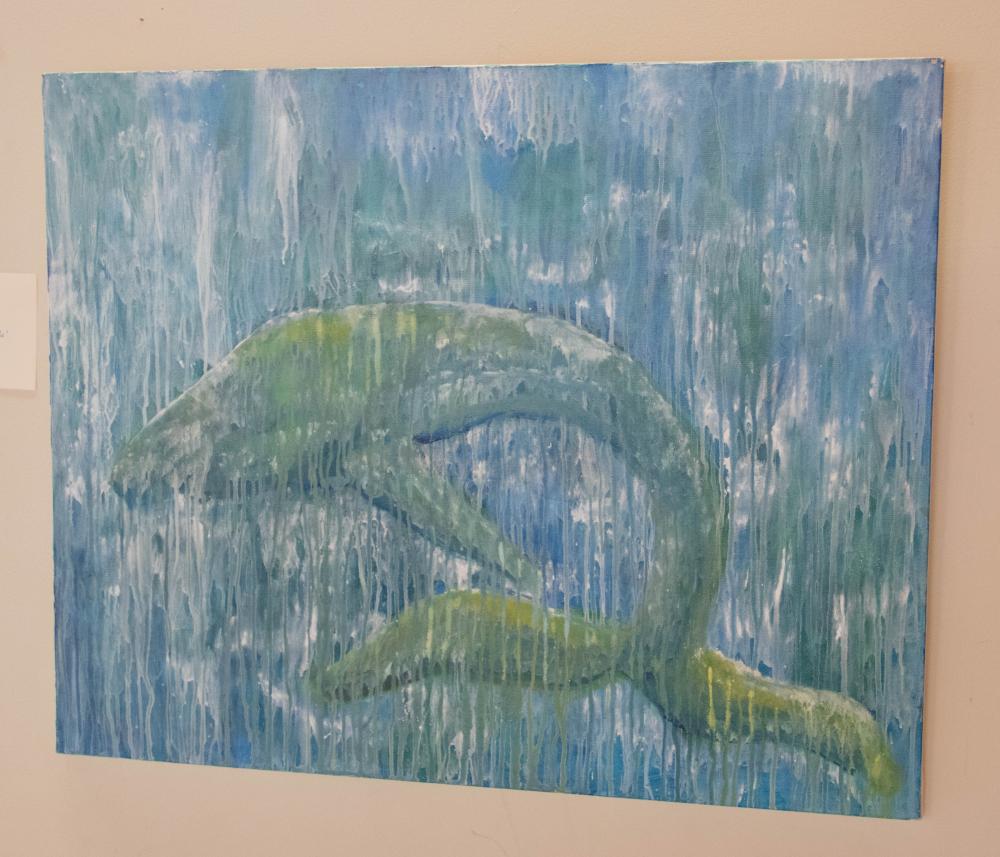 A whale painting made by Dan Meiggs.
A whale painting made by Dan Meiggs.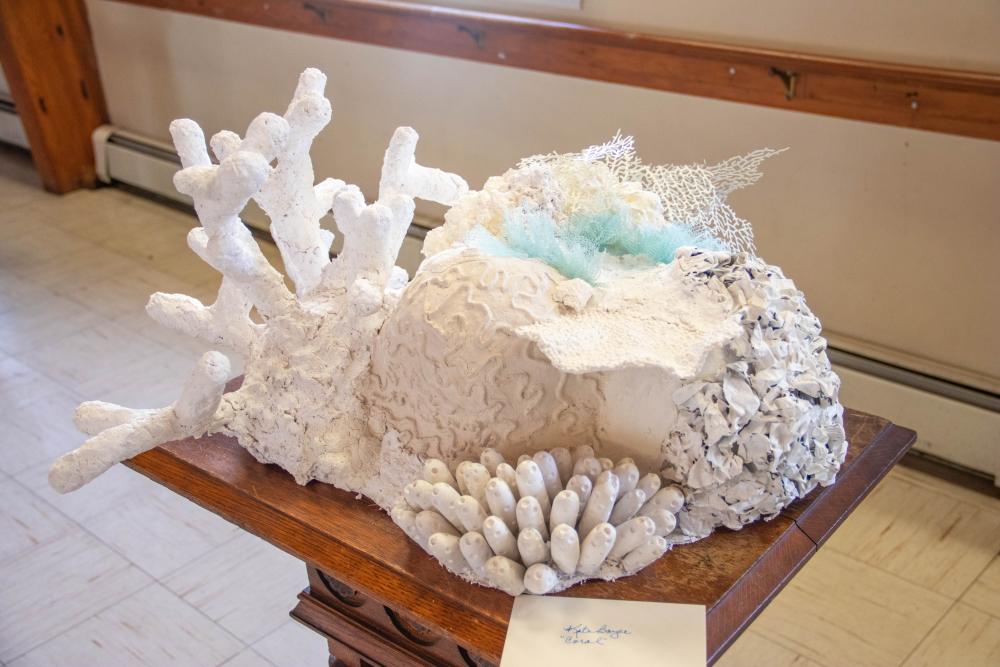 A coral sculpture made by Kate Boyer.
A coral sculpture made by Kate Boyer.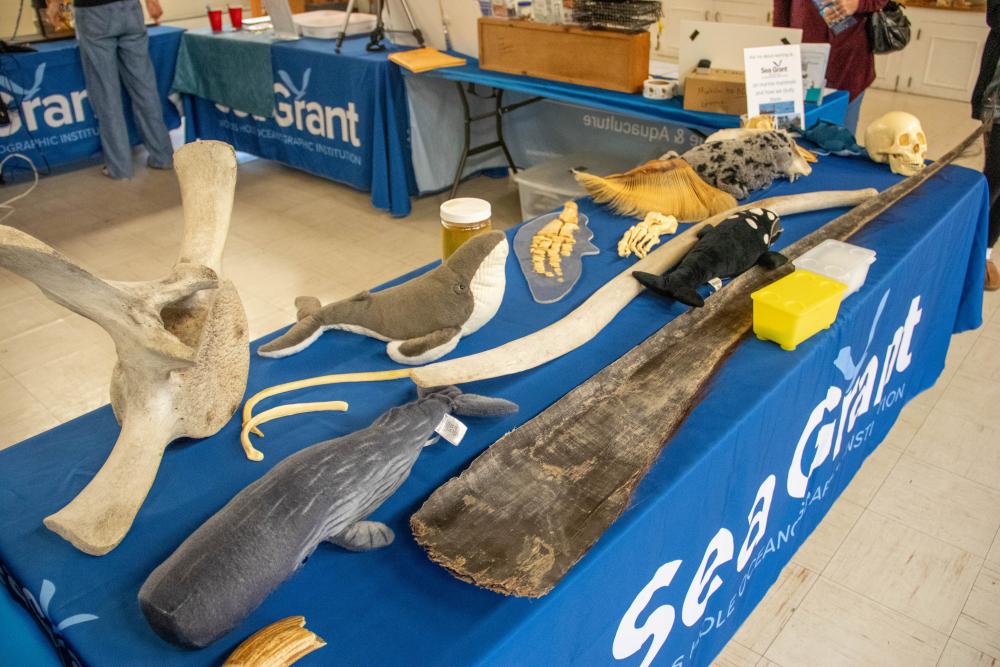 The Woods Hole Oceanographic Institute had some whale-y good items on display.
The Woods Hole Oceanographic Institute had some whale-y good items on display.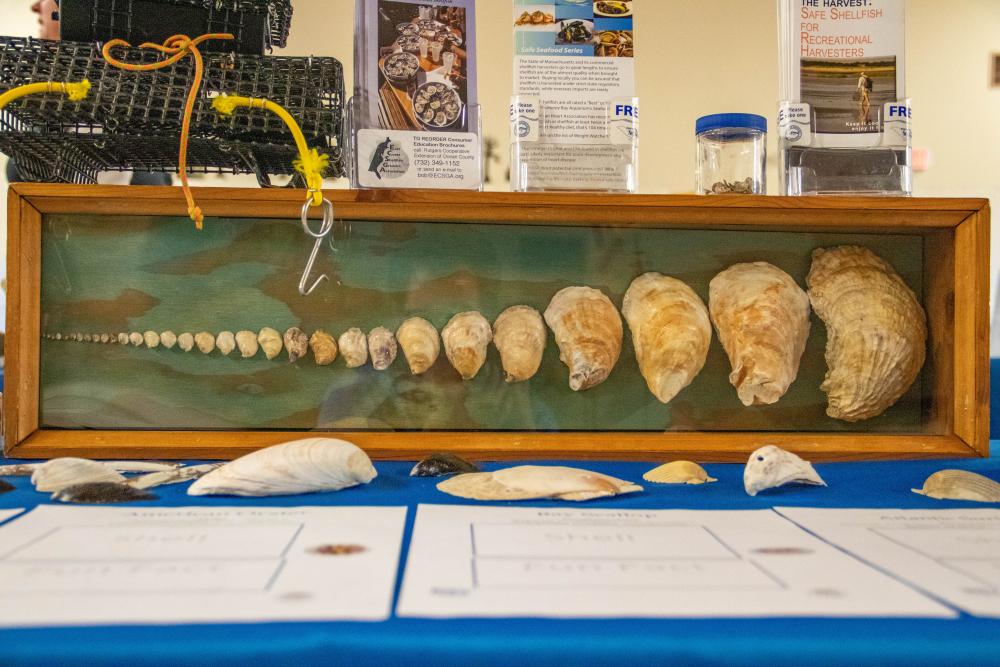 A collection of shells.
A collection of shells.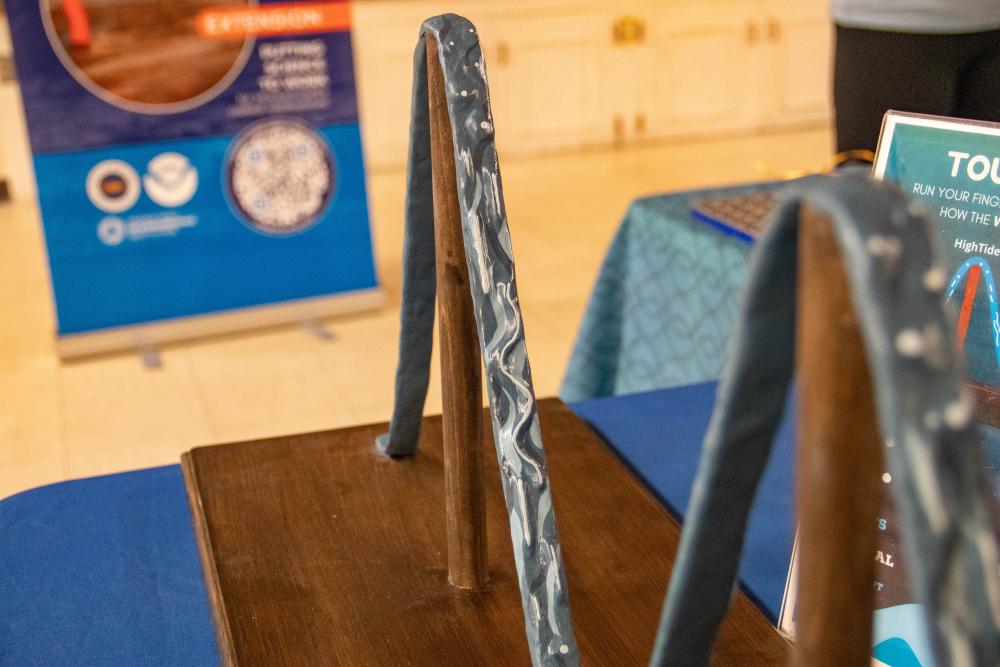 The display Terry Wolkowicz brought to help visually impaired people understand how currents work.
The display Terry Wolkowicz brought to help visually impaired people understand how currents work.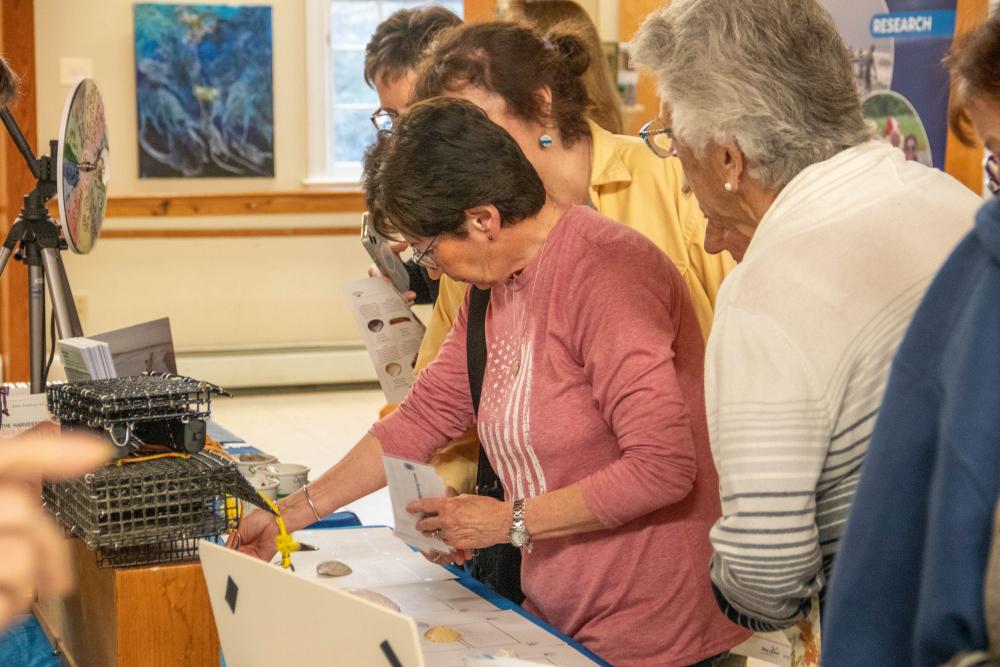 Wareham resident Michele Sabourin attempts to match shells to their species.
Wareham resident Michele Sabourin attempts to match shells to their species.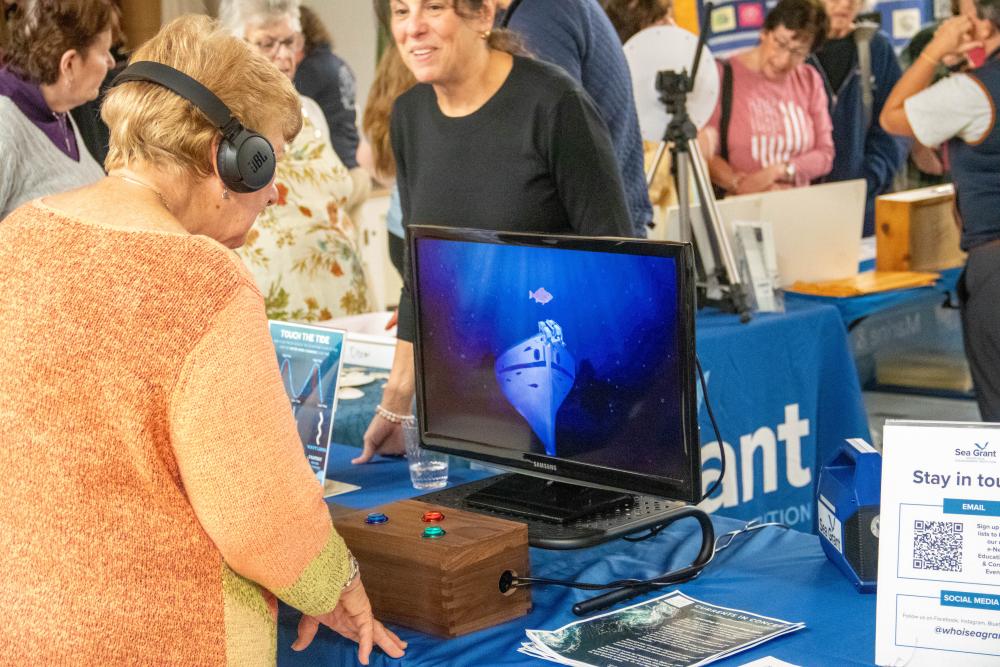 Chris Markola of Plymouth attempts Wolkowicz 's game to clear fishing nets from shipwrecks.
Chris Markola of Plymouth attempts Wolkowicz 's game to clear fishing nets from shipwrecks.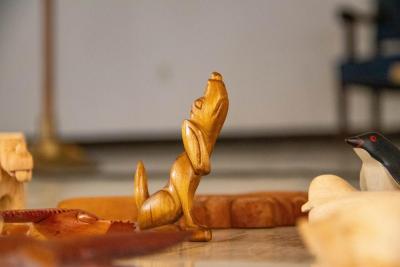 A dog carved by Ronald Westgate on display during the event. Photo by Bobby Grady
A dog carved by Ronald Westgate on display during the event. Photo by Bobby Grady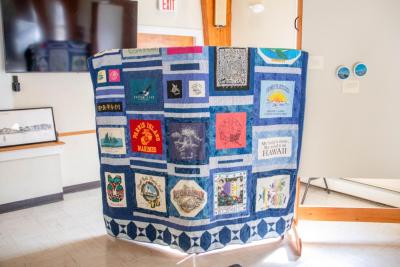 The quilt Westgate and his wife Mary made out of old T-shirts.
The quilt Westgate and his wife Mary made out of old T-shirts.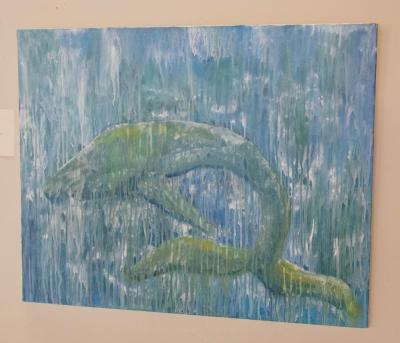 A whale painting made by Dan Meiggs.
A whale painting made by Dan Meiggs.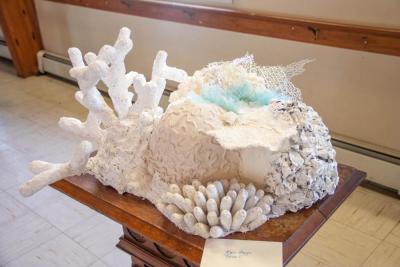 A coral sculpture made by Kate Boyer.
A coral sculpture made by Kate Boyer.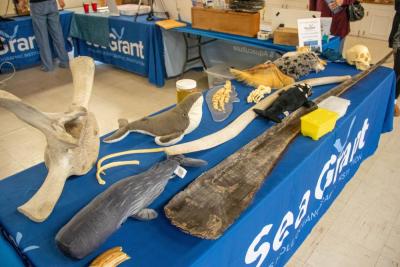 The Woods Hole Oceanographic Institute had some whale-y good items on display.
The Woods Hole Oceanographic Institute had some whale-y good items on display.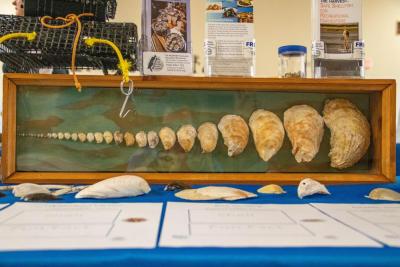 A collection of shells.
A collection of shells.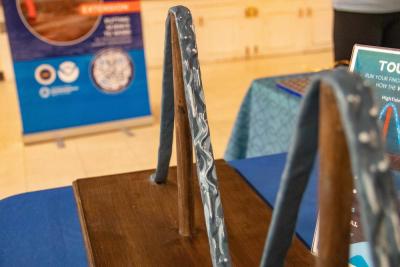 The display Terry Wolkowicz brought to help visually impaired people understand how currents work.
The display Terry Wolkowicz brought to help visually impaired people understand how currents work.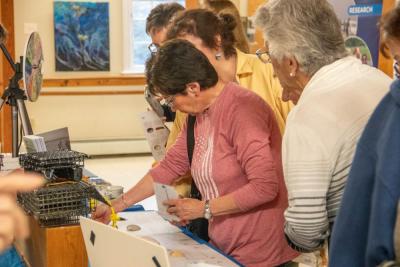 Wareham resident Michele Sabourin attempts to match shells to their species.
Wareham resident Michele Sabourin attempts to match shells to their species.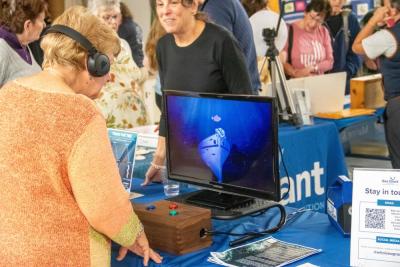 Chris Markola of Plymouth attempts Wolkowicz 's game to clear fishing nets from shipwrecks.
Chris Markola of Plymouth attempts Wolkowicz 's game to clear fishing nets from shipwrecks.Remember what it was like at the science fair? Now imagine it being done by professionals who specialize in the ecosystems surrounding Wareham.
The Coastal Landscapes science and art exhibit at the First Congregational Church featured science exhibits, paintings, sculptures and carvings of South Eastern Massachusetts.
The exhibit is being put on by the Woods Hole Oceanographic Institute, a non-profit that works to promote ocean science and education and Sea Grant, a university partnership program. The institute uses the program to partner with students from the Massachusetts Institute of Technology.
“We work with the shellfish industry, we work to make our ecosystems more healthy, and we study nutrient pollution and things like that,” said Sea Grant Director Matt Charette.
The exhibit is open now until Oct. 26 and touches on different topics the institute researches including shellfish agriculture, coastal erosion and a special display focusing on ocean debris from fishing and shipwrecks.
Charette said the institute is currently looking into developing remotely operated vehicles to remove fish nets from shipwrecks. To demonstrate this, Terry Wolkowicz who works for Sound Explorations, created a display on ocean currents.
Sound Explorations uses sound, music and other sensory displays to communicate scientific research with people who have impaired sight.
Wolkowicz's display showed how water moves at high and low tide which she said has been made accessible through various textures.
“You can look for the dots on the display for slow moving water, dashes are a little more bumpy and squiggles are a little more turbulent,” she said. “But if you run your hand across it you would not need to see the display to understand this because all the textures are embedded into it.”
Wolkowicz's display also included a video game for people to play that shows how scientists would go about removing fish nets from shipwrecks.
“You send a robot down and the game asks you when you’re going to launch your robot to give it the most time before the waves and current are going to mess with it,” she said. “Depending on your choices, it runs a simulation to see if your mission was successful or not.”
Wareham resident Ronald Westgate contributed some art to the exhibit with his wooden animal carvings and the quilt made of old T-shirts he made with his wife Mary.
“When my father came back from WWII he started carving and I was a young teenager so of course — like my father — I started carving,” Westgate said. “I was in and out of it my whole life.”
Now in his 90s, Westgate said he doesn’t carve anymore but decided to put his old works on display for this exhibit.
“I brought them in and put them in the show,” he said. “They were just sitting in a box at home.”
For the quilt he and his wife made, the shirts came from all over the world including some places Ronald visited as a marine.
“I got to spend a lot of time in the Mediterranean all the way to Greece and Turkey,” he said.
Wareham resident Michele Sabourin was in attendance and said she was learning more and more about the area she grew up in.
“We think coming from New England we know everything about shellfish but when you take the quiz to try and pick out which shellfish is which, you really don’t know,” Sabourin said.
She added the event also helped her appreciate the area more than she already does.
“I’ve always loved this area and I’ve lived here all my life,” she said. “I don’t think I’d want to live anywhere else.”













